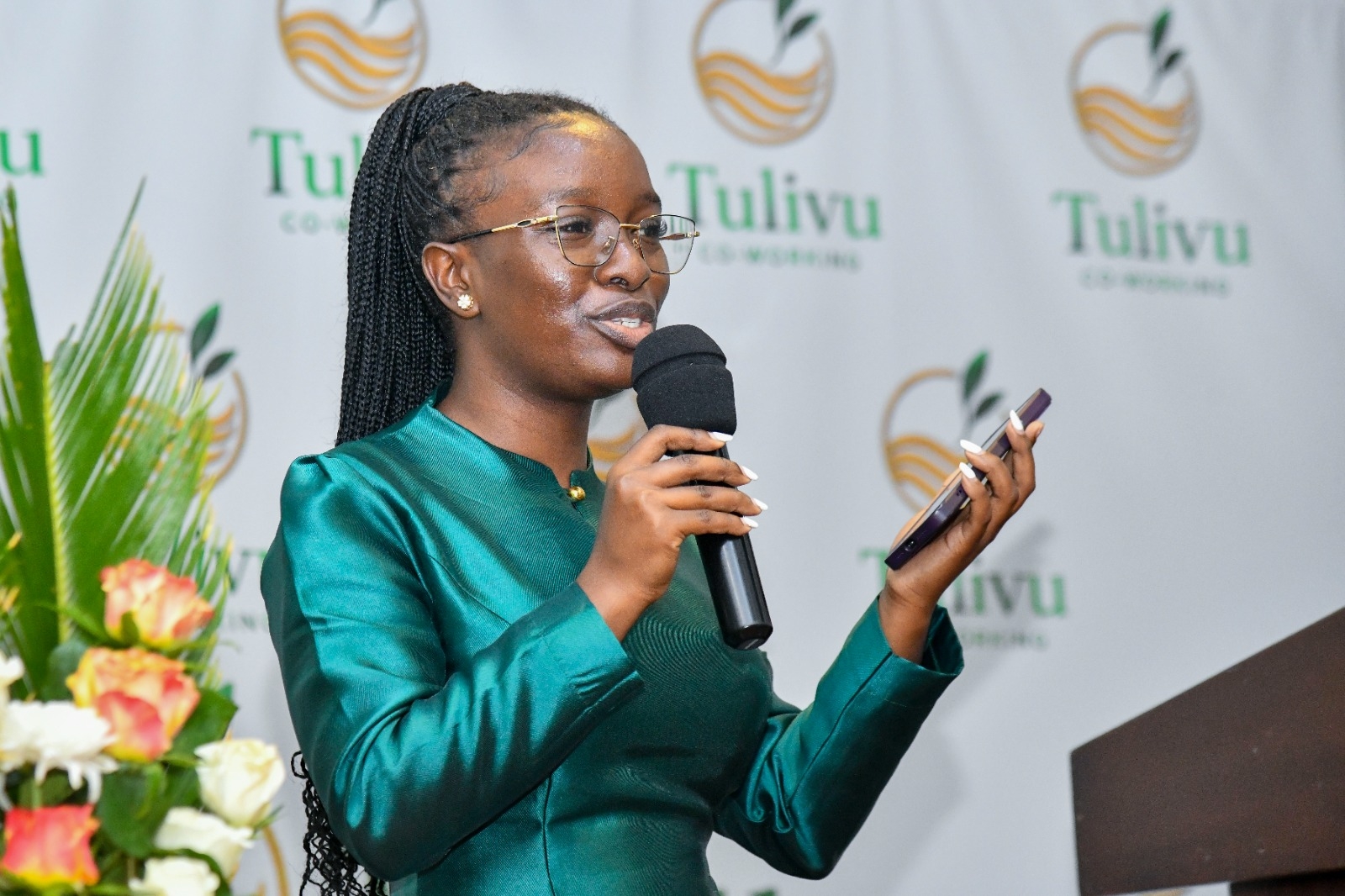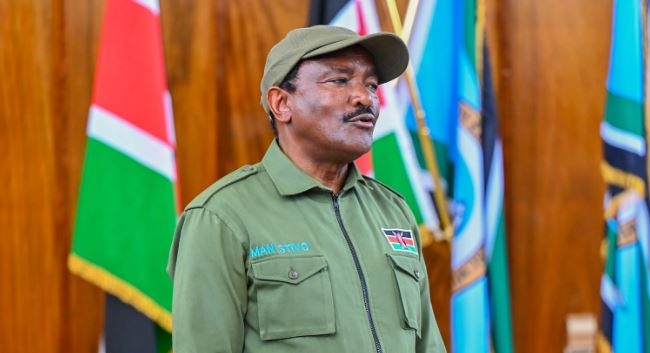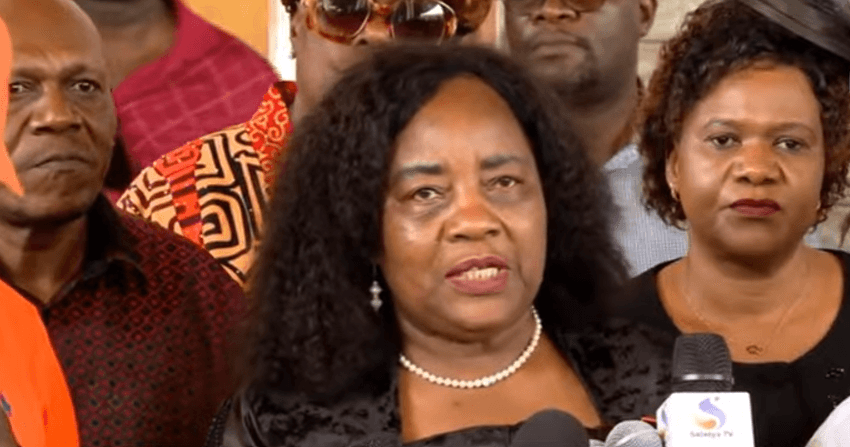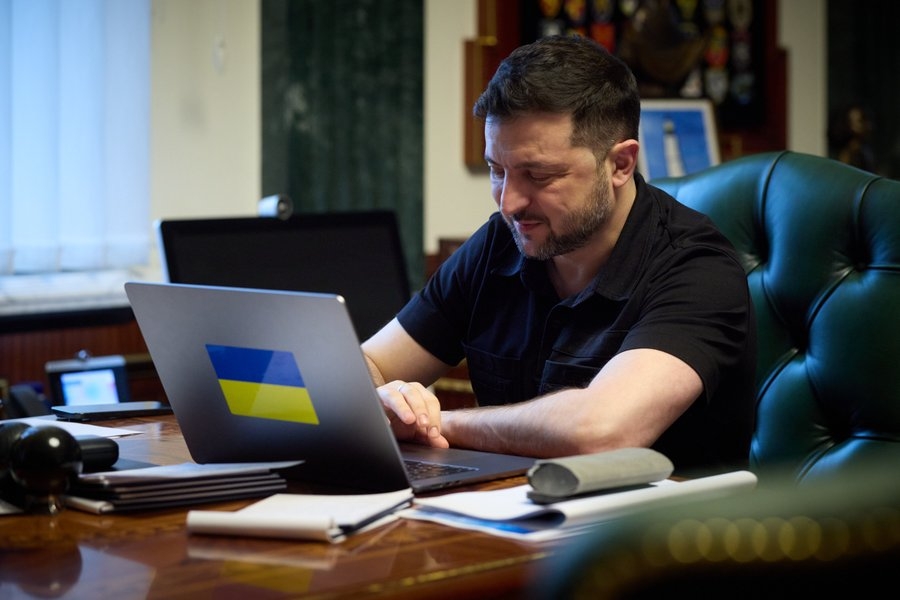
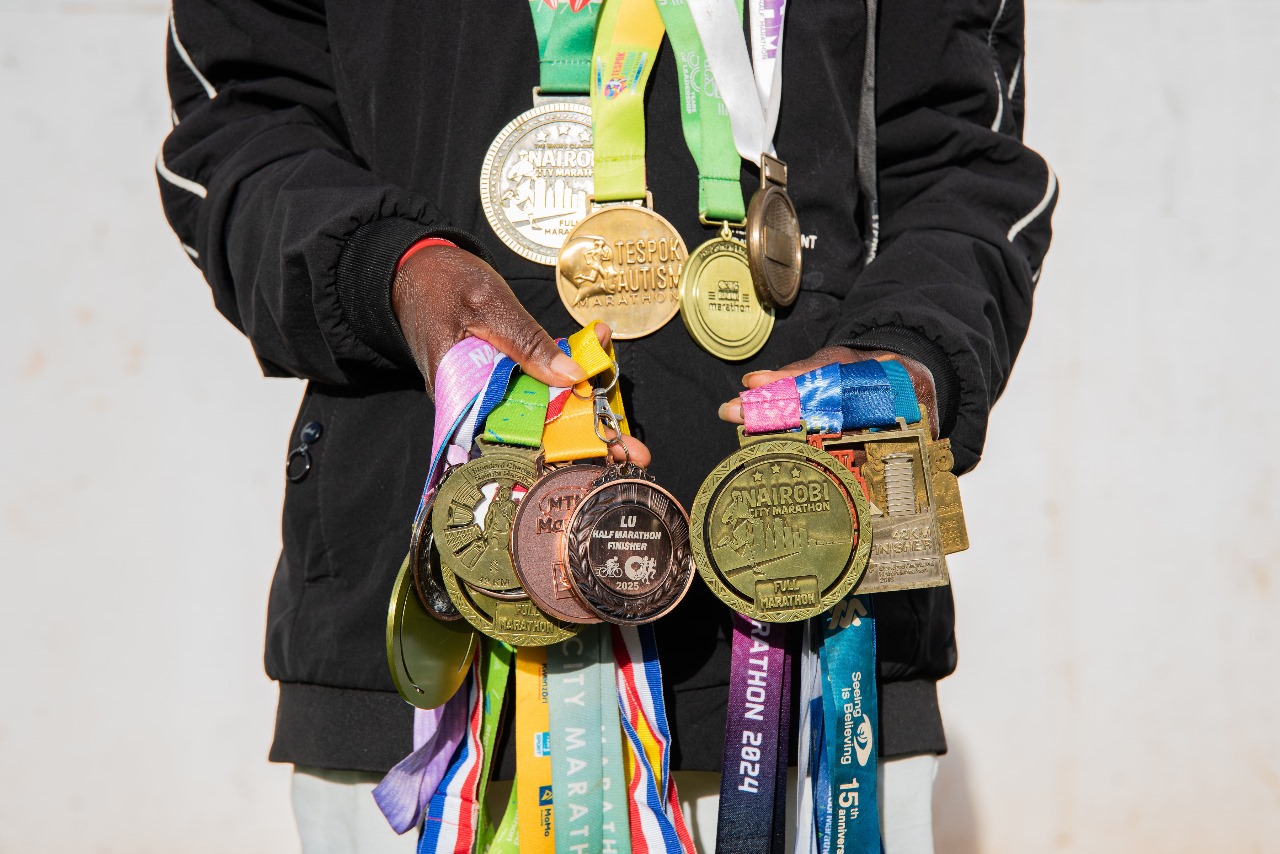 Chepkorir Moraa* (not her real name) displays over 30 medals she has won in different races despite the sexual harassment she has gone through in her career / MUNENE NYAGAH
Chepkorir Moraa* (not her real name) displays over 30 medals she has won in different races despite the sexual harassment she has gone through in her career / MUNENE NYAGAHIt’s 4pm on a Monday. The sun is bright in Iten, Elgeyo Marakwet county, yet the air carries a cold breeze. This is the perfect weather for athletes' training. Along the roads and trails, groups of young, upcoming and experienced athletes are running in different directions, each determined to become a winner in their respective races during official competitions.
About 2km from the outskirts of Iten town, we meet Chepkorir Moraa* (not her real name). She is warming up and stretching, preparing for her evening training session in pursuit of improving her performance, building on her growing prowess that has already seen her compete in various races, leaving her among the most decorated and underrated locally.
Chepkorir is a survivor of gender-based violence, an experience she says almost ended her athletics career before she regained her strength and momentum.
Her story of endurance and breaking free from the chains of GBV remains forgotten behind her pursuit to conquer the world’s most prestigious races.
She recounts her journey since first joining fellow athletes in Iten, a region well known for producing and nurturing athletics champions in long-distance races.
“I started my athletics training in Nairobi in 2016 before moving to Iten in 2017 after I was advised the place would fit well with aspiring athletes,” Chepkorir said.
Her career-threatening occurrences began in 2022, following the Covid-19 disruptions, which led her to join a group of unattached athletes who promised to find her racing opportunities. They later shifted their tone to exchange of sexual activity and an offer of 15 per cent cuts in the monetary reward she would receive in any race, an offer she turned down.
Chepkorir, who boasts over 30 national and international medals to her name, said the problems didn’t stop. She went ahead and fell prey to another coach who promised to help her rebuild her career after it was disrupted by the Covid-19 pandemic.
“It was after training that my then-new coach asked me to move closer to his car to sign some documents ahead of a race that I was supposed to participate in, and in the process, he urged me to have [sexual] intercourse inside his car so I could be assured of a place in the race,” she said.
"I turned down the offer, and that’s how I missed the race despite meeting the required minimum minutes for an athlete to take part."
The incident left her frustrated because, as a female athlete, reporting such an incident was met with criticism and stigmatisation. Such cases were also met with little or no action back then.
What followed were threats from the undisciplined coach that forced her to seek help from the police, despite knowing that they wouldn’t do anything to help her.
Following the death of athlete Agnes Tirop in October 2021 and Damaris Muthee in April 2022 in suspected cases of Gender Based Violence, Chepkorir’s fear became even more real.
“I felt the career wasn’t worth losing my life or my dignity for, and I had to call it a day. I stopped training and instead opted for alcohol consumption to calm my frustrations,” she recalled.
In 2022, the Ministerial Committee on Gender Welfare in Sports reported that 57 per cent of female athletes in the country had experienced abuse in training camps, with 11 per cent facing sexual abuse.
At least 47 per cent of the victims do not report to authorities, with just 14 per cent reporting but receiving little to no action, the committee found.
In Chepkorir's case, the coach kept threatening and following her, which forced her to report him to Iten police station.
After Tirop's demise and similar cases, the United Nations Population Fund felt there was an urgent need for measures to arrest the worrying trend.
They felt there were missing interventions to detect, prevent and respond to the growing number of GBV cases in athletics training camps.
The journey to solutions against GBV began in 2022 with the establishment of the Agnes Tirop Conference.
Tirop was stabbed to death barely five weeks after setting a
world record in the 10km road race in Germany. The conference aimed to accelerate the fight against the GBV injustices that cost her her life.
In 2023, various stakeholders, including UNFPA and the Elgeyo Marakwet government, united and initiated Standard Operating Procedures (SOPs) to provide a clearer path to promote the fight against Gender Based Violence among athletes in Kenya.
The Standard Operating Procedure outlines clear guidelines for reporting and investigating GBV cases and supporting survivors, ensuring a survivor-centred approach.
The stakeholders further engaged the Centre for Enhancing Democracy and Good Governance (CEDGG), which persuaded the county and national governments and the athletics community to adopt and embrace the guidelines.
The guidelines have now played key roles in changing the GBV narrative in the athletic community.
Chepkorir, who is now preparing for an upcoming race, says the SOPs have brought a new dawn to athletes who faced difficulties in reporting sexual harassment in camps.
“After the reports of Damaris Muthee's death barely a year after that of Agnes Tirop, my hope faded and fear grew even more,” she said.
“Until I met a friend athlete who had undergone the SOPs training and our engagement brought back my hope and willingness to compete again, and here I am.”
Chepkorir said her friend had undergone physical abuse. The training and psychotherapy she underwent in the camp helped her recovery.
At least three athletics training camps in the Rift Valley have embraced and fully adopted SOPs: Iten Athletics Camp, Kiprun 42 House Camp and Nzimaheart Runners Camp.
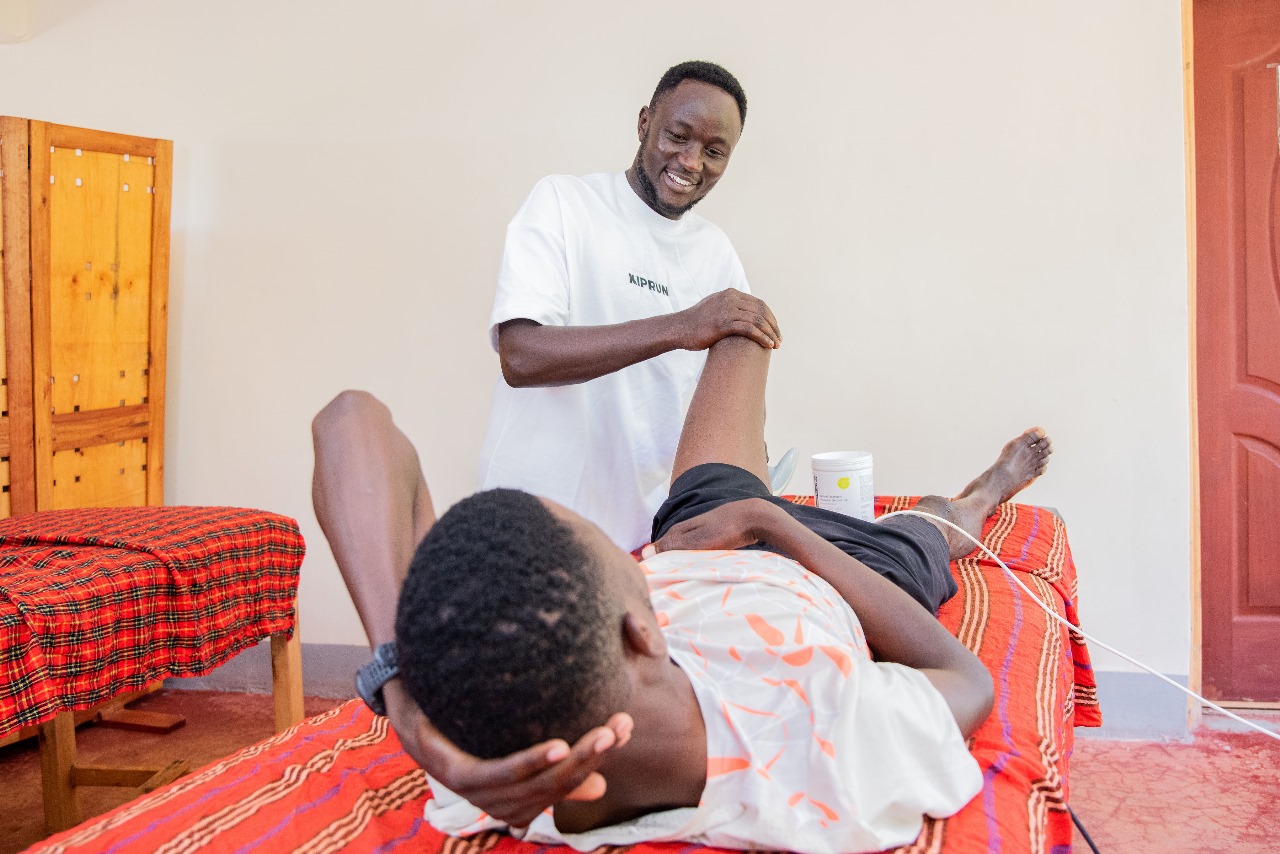 Brian Kipchumba, a physiotherapist at Kiprun 42 House in Iten, Elgeyo Marakwet county, attends to one of the athletes at the camp / MUNENE NYAGAH
Brian Kipchumba, a physiotherapist at Kiprun 42 House in Iten, Elgeyo Marakwet county, attends to one of the athletes at the camp / MUNENE NYAGAHEMPOWERING THE VOICELESS
CEDGG chief executive Paul Masese said the camps have identified psychosocial professionals so that the professionals play a major role in promoting the fight against GBV among athletes.
“Before the SOPs, there were very weak methods of dealing with the issues of Gender Based Violence,” he said.
As the United Nations makes efforts to end GBV by 2030, the Kenyan athletics sector is making strides to adopt evidence-based solutions, Masese added.
The athletics community, mainly from the North Rift of Kenya, is also seeking more interventions to end GBV and other forms of exploitation.
The Sexual and Gender Based Violence Against Women in Sports Report 2025 by the Aga Khan University says 23 per cent of athletes in Kenya face physical violence, and 21 per cent face sexual harassment.
Dr Byron Kipchumba, the coach at Kiprun 42 House Camp, welcomed the implementation of the SOPs, saying it has breathed meaning into the fight against GBV in athletics.
The coach, who manages the camp that hosts 20 boarding athletes, said athletes have become an easy target because of the money involved in the sports business.
“The athletic dynamics have really changed compared to the 1980s, and everyone is viewing it from a business perspective,” Kipchumba said.
"Everyone winning a race is receiving something, and this draws people’s attention and through this, athletes end up engaging in a cosmetic relationship."
The coach, who holds a doctorate in sports science and management, said the guidelines will give a voice to the voiceless in the athletics community.
“These SOPs will empower the athletes in camps and groups to speak up when hurt, and the knowledge about dealing with money and the separation between winning, owning and spending,” he said.
"That will ensure the trust level is distinguished between perspective and reality."
FINANCIAL EXPLOITATION
At Iten Athletics Camp, the camp that accommodated Agnes Tirop before she was murdered, there’s Gladys Chemutai, the 2024 champion of the Standard Chartered Marathon.
She narrates the important role of safeguarding regulations after she went through a management that violated her agreement after participating in a race.
Chemutai recalls mistreatment from agents and managers in 2022. She participated in a race and expected to be paid at least Sh40,000, only to receive just half the amount.
She also recounts finishing third in the Laiden Marathon only to be told there was no award for the position. She expected at least Sh100,000 under her name.
“There are many athletes who face these types of injustices from the management and agents and other officials. It pains me to see colleagues pass through harassment and assaults,” Chemutai said.
She added female athletes face even more challenges of threats and stigma. She encourages her colleagues to stand up and report now that there’s a better response compared with the past.
“My advocacy is for female athletes’ forums to promote the
safeguarding of their wellbeing,” she said.



